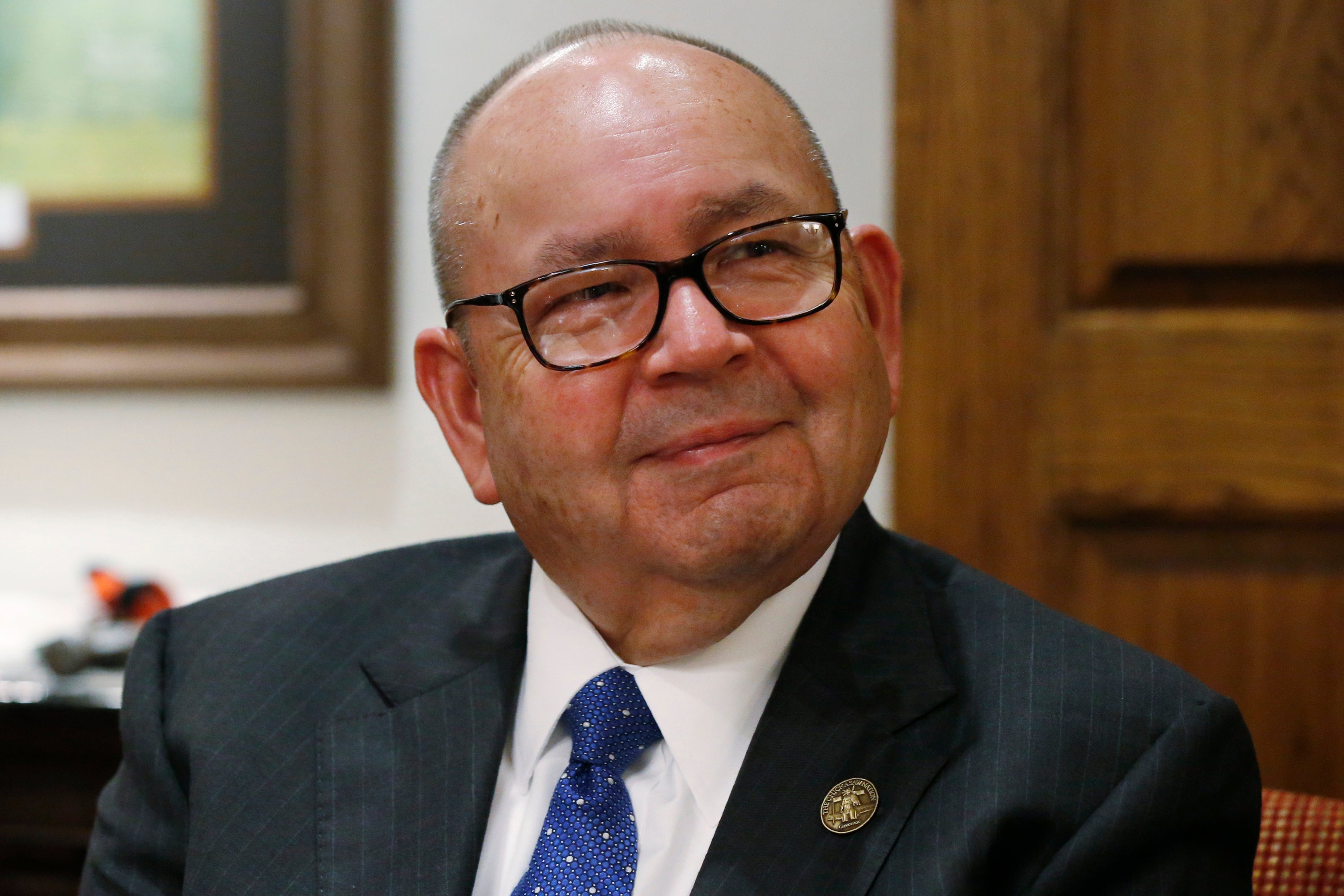Federal bill to address criminal jurisdiction in Oklahoma
Two Oklahoma-based Native American tribes say they've reached an agreement on a federal bill to address criminal jurisdiction in Indian Country

Your support helps us to tell the story
From reproductive rights to climate change to Big Tech, The Independent is on the ground when the story is developing. Whether it's investigating the financials of Elon Musk's pro-Trump PAC or producing our latest documentary, 'The A Word', which shines a light on the American women fighting for reproductive rights, we know how important it is to parse out the facts from the messaging.
At such a critical moment in US history, we need reporters on the ground. Your donation allows us to keep sending journalists to speak to both sides of the story.
The Independent is trusted by Americans across the entire political spectrum. And unlike many other quality news outlets, we choose not to lock Americans out of our reporting and analysis with paywalls. We believe quality journalism should be available to everyone, paid for by those who can afford it.
Your support makes all the difference.Two of the most powerful Native American tribes in Oklahoma said Monday they've reached an agreement on federal legislation that would address concerns over criminal jurisdiction in light of a recent U.S. Supreme Court decision.
The leaders of the Cherokee and Chickasaw nations said the bill expected to be introduced in Congress Tuesday by Rep. Tom Cole would authorize the two tribes to reach a compact with the state over criminal jurisdiction. Cole's office didn't immediately respond to a request for comment on the legislation, with a spokeswoman saying Cole planned to release a statement on Tuesday.
Dubbed the McGirt decision, the July ruling by the U.S. Supreme Court determined that the reservation of the Muscogee Nation was never disestablished by Congress and that Oklahoma prosecutors lack jurisdiction over crimes within the historic reservation boundaries in which defendants or victims are tribal citizens.
The decision has since been expanded by state appellate courts to include the tribal reservations of all of the Five Tribes, known historically as the Five Civilized Tribes, which cover nearly the entire eastern half of Oklahoma. As a result, hundreds of criminal convictions, including several death sentences for first-degree murder, have been vacated and tribal and federal officials have been scrambling to refile those cases in tribal or U.S. district court.
“We support federal legislation that is based on the core principle of self-determination, clearing the way for us to work with the state as we navigate the best path forward," Chickasaw Nation Gov. Bill Anoatuby said in a statement. “We look forward to working with our delegation to secure the passage of such legislation."
The proposed legislation would not diminish either tribe's authority or treaty rights, but would give the two tribes the express authority to negotiate a separate agreement, or compact, with the state over criminal jurisdiction. Cherokee Nation Attorney General Sara Hill said one area a compact could address is authorizing state criminal jurisdiction in cases involving non-Native American defendants committing crimes against Native Americans.
Alex Gerszewski, a spokesman for Oklahoma's attorney general, Mike Hunter, said his office supports the concept of allowing compacts with the state to address jurisdictional concerns.
“Like every piece of legislation, our support depends on the language and whether or not it fixes current problems without creating new ones," Gerszewski said.
Gov. Kevin Stitt s office did not respond to a request for comment on the proposed legislation, and it wasn't clear how willing he would be to engage in negotiations with the tribes. Despite his own Cherokee Nation citizenship, the governor's relationship with many of the Oklahoma-based tribes became strained after a drawn-out legal battle with them over casino gambling.
“I can always be optimistic," Cherokee Nation Principal Chief Chuck Hoskin said Monday. “I think I’ve got plenty of reasons to be pessimistic about Gov. Stitt’s approach to tribes in Oklahoma, but I take Gov. Stitt at his word when he says he’s concerned about making sure the public is protected and that victims are protected and that justice is served. Those are interests that I have as the chief of the Cherokee Nation."
Three of the other Five Tribes — the Choctaw, Muscogee and Seminole nations — have not indicated that they would be willing to negotiate a compact over criminal jurisdiction. When the idea was discussed last fall after the McGirt decision, some tribal leaders voiced concerns about the possibility that such compacts might degrade tribal sovereignty.